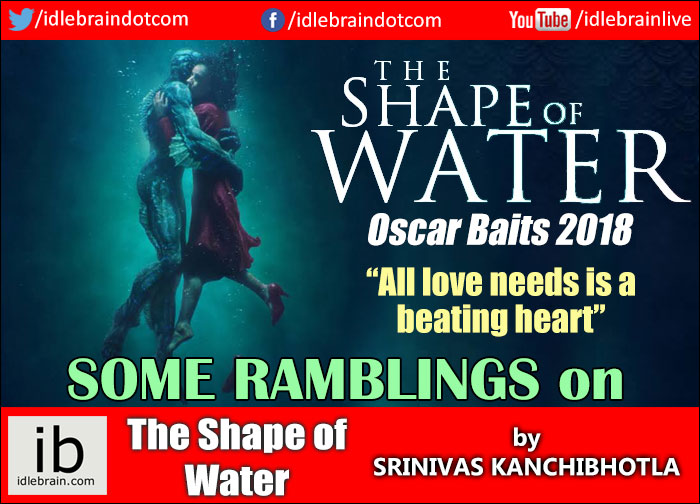
Cute is easy. Think 'Baby's Day Out'. It doesn't take much to wring out the right emotion if the subject on screen is cloyingly cute. The battle is half-won if the casting of the lead roles is done along eye-pleasing lines. And the converse of it is just as true. One would have to move the mountains to make an appealing/heart-tugging movie with an unattractive cast. It is all based on the cruel truth that eyes are very judgmental. Before the subject even utters the first word, his (her/its) mere presence would automatically build a prejudice against him. And the uphill battle over the course of his (movie) lifetime is spent in working against that predisposition towards his outwardly appearance. And this is not just in the movie world, the situation is no different in the real life. That is why the heart swells/soars in pride/joy watching someone overcoming that prejudice (particularly about the looks) and proving everyone wrong that looks are the worst yardstick and the least trustworthy factor when it comes to assessing the content. But unfortunately that never stops the world from feeling right(eous) about itself judging the book by its cover alone. And more so with movies which is a visual medium and which is all about the looks. Good aliens have to look cute and benign and bad aliens have to look terrible and menacing. Though it is called sterotyping it is in fact a visual shorthand for establishing a character without having to spend extra time in proving the contrary, and in a medium where time is literally money, looks became the fastest way for establishing the nature of a character. The joke goes 'are there any really good looking homeless around?', as the world bends over backwards accommodating the beauty factor.
Two movies stand is stark contrast proving the above, one is Speilberg's 'E.T.', and the other, David Lynch's 'The Elephant Man'. The 'E.T.' is short, cute, wide-eyed, walks and talks funnily (reminiding of the George Carlin bit about why dogs looks more human than cats, 'because they have eye brows'). And it doesn't take much for kids to take to it, and even wrap audience's hearts around its finger, with those round bulbous eyes. 'The Elephant Man' on the other hand is a grotesque genetic anamoly, where shock, horror and aversion are the initial reactions to his appearance. That 'The Elephant Man' (though based on a true story) stands as a better movie when it comes to turning the audience around much more than 'E.T.' is purely on account of the sissyphian struggle in having to constantly prove that the disfigurement of the protagonist should never come in the way of identifying with his struggle of finding an acceptance with the world as a human being. The irony being the acceptance to a cute 'E.T.' is much more than a disfigured human being.
'The Shape of Water' is one more entry in the prejuidice towards the physical appearance category that has started way back with the 'Beauty and the beast' and many such inter-species romances. Here none of the leads is "beautiful" in the conventional sense, and more, the male is an underwater vertebrate creature whose features are far flung from anything human. This is Guillermo Del Toro at work here whose creative life has been dedicated to monsters and misfits and it felt only natural that he married the two categories in a sensitive depiction of sympathy, empathy and sex. Upping the ante further, both the characters are mute (well, one is, and the other is a creature) for all practical purposes, and yet the warmth that exudes between the both of them beats any reams of dialogue about professing and expressing the love towards each other. The movie runs on a standard 'E.T.' template - alien found, locked up for national security and experimented upon and a good heart takes it upon herself to free it from the cruel clutches of humanity and return to its natural habitat. But where it differs is with the adult tilt of the material, adding the extra layer of attraction and love, making the relationship more than about lonely yet kindred souls. This is far stretch from another such land-sea romance 'Splash', which has a mermaid falling for a human. Fantasies, both of them, while 'Splash' is more a fish out of water (quite literally!) scenario, 'The Shape of Water' barely plays on the alien factor but rather focusses on the alienation aspect of its leads. The themes, involving prejudices, stemming primarily from ignorance ('we fear what we don't understand'), and physical appearances, find resonance in the present day world, where the alien can be a stand-in for all the intolerances involving race, class, color and creed in the current society. So, a fantasy? Not entirely.
checkout http://kanchib.blogspot.com for Srinivas's Blog.
